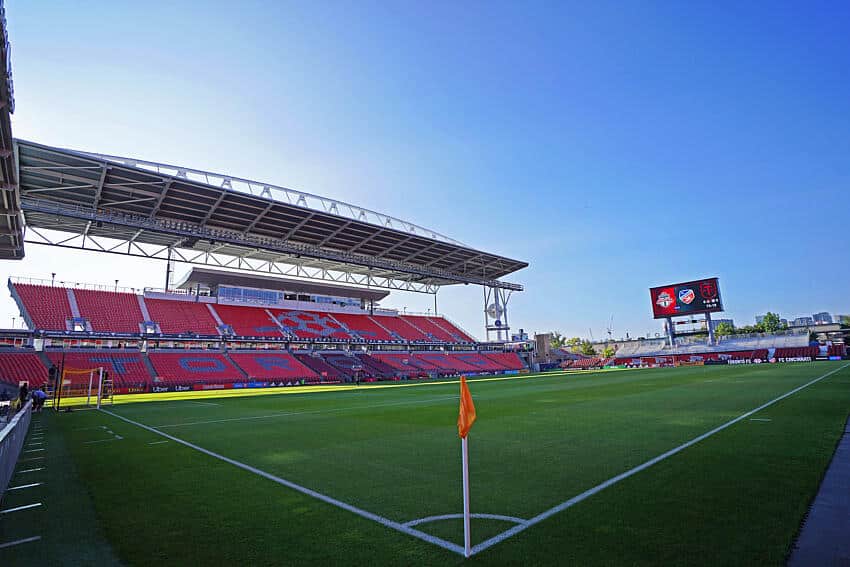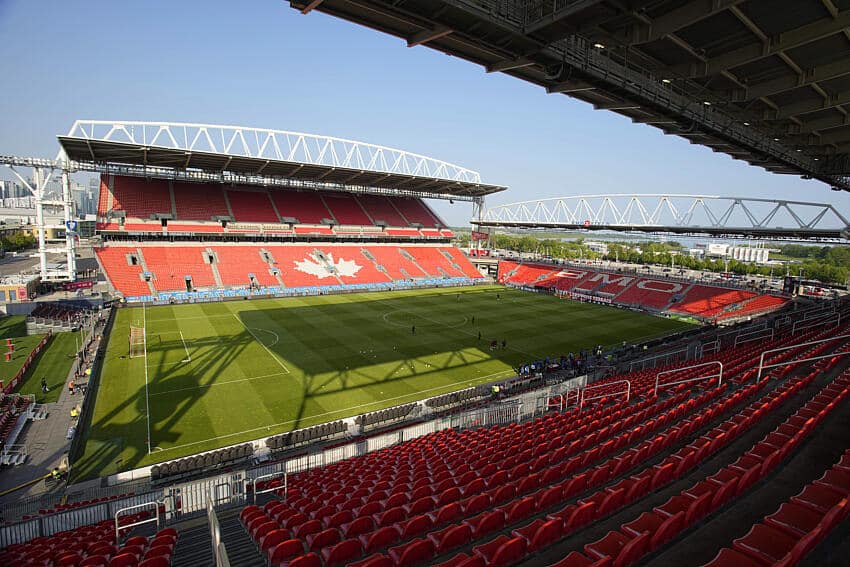BMO Field is one of just two Canadian stadiums to have been selected as a venue for the 2026 FIFA World Cup, hosting a total of six matches.
But what qualifies the ground as a World Cup-worthy venue? And who currently calls BMO Field home? Read on to find out…
BMO Field selected as a venue for 2026 World Cup

Who currently plays at BMO Field?
Considering that the ground is located in Toronto, it may not be all that surprising to learn that the stadium is home to two Toronto-based sports teams.
The first, and perhaps most well-known, of which is Toronto FC – a football club that competes in Major League Soccer. Several highly respected European footballers have represented the club over the years, including the likes of Jermain Defoe, Sebastian Giovinco and Lorenzo Insigne.
The second is the Toronto Argonauts. The Argos are a professional Canadian football team who play in the Eastern Division of the Canadian Football League.
A brief history of BMO Field
BMO Field is owned by the City of Toronto and was opened in 2007 to replace its predecessor, the Exhibition Stadium.
Initially, the site was purpose-built for European football, serving first and foremost as the home of Toronto FC. However, in 2014, the stadium underwent a series of changes and was redeveloped into a facility that was capable of hosting Canadian football – it was at this point that the Toronto Argonauts moved into the ground.
At this current moment in time, BMO Field has an approximate capacity of 30,000. However, an expansion has been planned in light of its selection as a venue for the 2026 World Cup which will see its capacity rise to 45,736.
What makes BMO Field worthy of hosting a World Cup

Previous successes
A good sign that a stadium has what it takes to be a World Cup venue is successfully hosting previous events of a similar nature and stature. BMO Field certainly ticks this box.
Since 2007, the ground has hosted the 2016 Grey Cup, the MLS Cup in 2016, the 2014 FIFA U-20 Women’s World Cup, and International Rugby and Lacrosse games. At each event, the stadium has proven to be an effective and elegant host – suggesting the step up to World Cup football should come naturally.
The site has also hosted a total of three matches across two separate CONCACAF Gold Cups.
Sleek & modern
Another absolute must for a World Cup venue is that it must be technologically sound. In an era where technology develops extremely quickly, any venue must be able to demonstrate that it is a symbol of its time. This is again another strength of BMO Field.
The ground not only boasts an integrated canopy hat ensures match-going fans are protected from the elements, but also an expansive pitch which allows the stadium to perfectly adapt to whichever sport is being played.
Iconic views
However, with that being said, one of the biggest attributes of BMO Field is the incredible views it offers of the Toronto skyline. The tall stands are perfectly backdropped by the various skyscrapers in the city, and will surely make for an excellent experience for any fan who is visiting the region for the first time.
One fan even hailed the view from BMO Field as “the best skyline view in the city”.
Given that the are only two Canadian stadiums operating as venues for the 2026 World Cup, there is a lot of pressure on the officials at the ground to succeed from a hospitality perspective. However, all the evidence suggests that BMO Field will pass those tests with flying colours.
